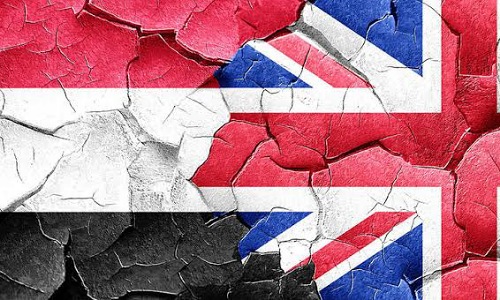International News
France Passes Bill Allowing Remote Phone Surveillance

The French government has successfully passed a bill that grants police authorities the ability to conduct remote surveillance on individuals by activating various features of their mobile phones, including cameras, microphones, and GPS.
This bill extends the scope of geolocation tracking to cover suspects of criminal activities, encompassing additional devices such as laptops, vehicles, and connected devices.
The surveillance measures outlined in the bill also enable law enforcement agencies to remotely activate recording functionalities to capture audio and visual evidence related to suspected cases of terrorism, organized crime, and delinquency.
However, the inclusion of these surveillance provisions within the broader “justice reform bill” has sparked criticism from both the political left and rights advocates, who argue that it represents an overreach of state power and an encroachment on individual privacy rights.
Detractors of the bill have labeled it as an authoritarian “snoopers’ charter,” expressing concerns about potential abuses and violations of civil liberties.
The provisions outlined in the surveillance bill passed have raised significant concerns regarding the potential infringement of fundamental liberties, according to La Quadrature du Net, a prominent advocacy group promoting digital rights and freedoms.
The group has specifically pointed out that these provisions pose a threat to the rights of security, privacy, private correspondence, and freedom of movement.
They have criticized the proposal as a step towards an overly heavy-handed approach to security.
But lawmakers agreed to the bill late Wednesday as Justice Minister Eric Dupond-Moretti insisted the bill would affect only “dozens of cases a year.”
During the parliamentary debate on Wednesday, lawmakers aligned with President Emmanuel Macron introduced an amendment to the surveillance bill, which seeks to restrict the use of remote spying to specific circumstances.
According to the amendment, remote surveillance would only be permitted when deemed necessary due to the nature and severity of the crime at hand, and the duration of such surveillance would be strictly proportional to the situation.
Additionally, the provision requires judicial approval for its implementation, with the total duration of surveillance limited to a maximum of six months.
Furthermore, the amendment explicitly excludes certain professions from being legitimate targets of remote spying. Individuals in sensitive roles, including doctors, journalists, lawyers, judges, and members of parliament, would be protected under the revised legislation.
Last month, the French Senate granted approval to a provision within the justice bill, which grants law enforcement authorities the ability to covertly activate cameras and microphones on devices belonging to suspects.
This provision represents an expansion of France’s surveillance capabilities, which have been steadily increasing since the wave of terrorist attacks in 2015.
The bill, commonly referred to as the “Keeper of the Seal” bill, has drawn comparisons to the controversial U.S. Patriot Act due to its perceived similarities in terms of surveillance powers.
International News
JUST IN: Slovakia PM Shot In Gun Attack
Slovakia’s Prime Minister, Robert Fico, was shot in a gun attack on Wednesday afternoon in Handlova, Slovakia.
He sustained injuries to his head and chest and was airlifted to the nearest hospital for medical attention.
EU Commission President Ursula von der Leyen condemned the attack on social media platform X, emphasizing its undemocratic nature.
She expressed sympathy for Fico and his family.
The Slovak Prime Minister is expected to make a statement regarding the assassination attempt shortly.
More to follow……
International News
I Won’t Resign, Says Spain’s PM
Prime Minister Pedro Sanchez of Spain has officially announced that he will not be resigning, bringing an end to a period of intense political speculation.
His declaration, made during a public address on Monday, follows days of uncertainty surrounding his tenure.
Earlier reports had hinted at Sanchez’s potential resignation amidst ongoing investigations into his wife, Begona Gomez’s alleged involvement in influence peddling and corruption.
However, Sanchez clarified that his contemplation of resignation was not driven by political strategy but rather by concerns over growing polarization and the dissemination of deliberate misinformation within the political landscape.
Sanchez passionately addressed the need to combat the degradation of public discourse, stating, “For too long, we’ve allowed toxic methods to corrupt our political and public life, methods that were unthinkable just a few years ago… Do we truly desire this for Spain?”
He emphasized his conviction, declaring, “I have acted with a clear determination: either we declare ‘enough is enough’ or allow this deterioration of public life to shape our future and condemn our nation.”
Sanchez’s choice to remain in office was significantly influenced by a strong demonstration of support at the Socialist Party’s headquarters in Madrid, where enthusiastic supporters passionately chanted, “Pedro, stay!” This outpouring of solidarity occurred shortly after the public prosecutor’s office recommended closing the investigation into Gomez.
Sanchez’s reaffirmation of his leadership role comes at a pivotal juncture as he gears up to guide his party through the upcoming regional elections in Catalonia on May 12.
The Socialists are poised to contest against the pro-independence factions currently holding sway, underscoring the significance of his continued leadership.
International News
UK Imposes Sanctions On Businesses Linked To Sudan Conflict

Britain has taken a decisive stance against the escalating conflict in Sudan by announcing sanctions targeting businesses associated with the warring factions.
Since the outbreak of fighting between rival generals on April 15 last year, the situation has deteriorated drastically, resulting in thousands of casualties and forcing approximately 1.8 million people to seek refuge in neighboring countries.
Aid workers on the ground have painted a grim picture of the humanitarian catastrophe unfolding in the country, with civilians enduring starvation, sexual violence, ethnic killings, and executions.
The UK’s Foreign Office has underscored the severity of the situation, emphasizing that “strict measures” will be implemented, including asset freezes on companies with ties to the Sudanese Armed Forces (SAF) and its rival, the paramilitary Rapid Support Forces (RSF).
British foreign minister David CameronCameron said “We continue to see appalling atrocities against civilians, unacceptable restrictions on humanitarian access and an utter disregard for civilian life.
“The businesses that support the warring parties must be held to account, alongside those responsible for human rights abuses. The world must not forget about Sudan. We urgently need to end the violence.
The sanctions target specific entities, including Alkhaleej Bank, implicated in financing the RSF, and Al-Fakher Advanced Works, a holding company facilitating gold exports for the organization, with proceeds funnelled into weapons acquisition.
Additionally, Red Rock Mining, known for providing funds to the SAF, faces sanctions. The company’s close ties to Defence Industries System, the economic and manufacturing arm of the SAF, further solidify its inclusion in the sanctions, as stated by the Foreign Office.
France, currently hosting an international conference on Sudan, is urging for aid contributions and heightened global attention to address what officials describe as a crisis overshadowed by ongoing conflicts in Ukraine and Gaza.
Will Carter, Sudan country director for the Norwegian Refugee Council, emphasized the dire conditions faced by civilians in the region, including starvation, widespread sexual violence, ethnic massacres, and executions.
According to the UN, over 8.5 million people have been displaced since the onset of the conflict.
The World Health Organization has issued warnings about the country’s collapsing health system, citing acute shortages of medical staff and essential medicines as pressing concerns.

















